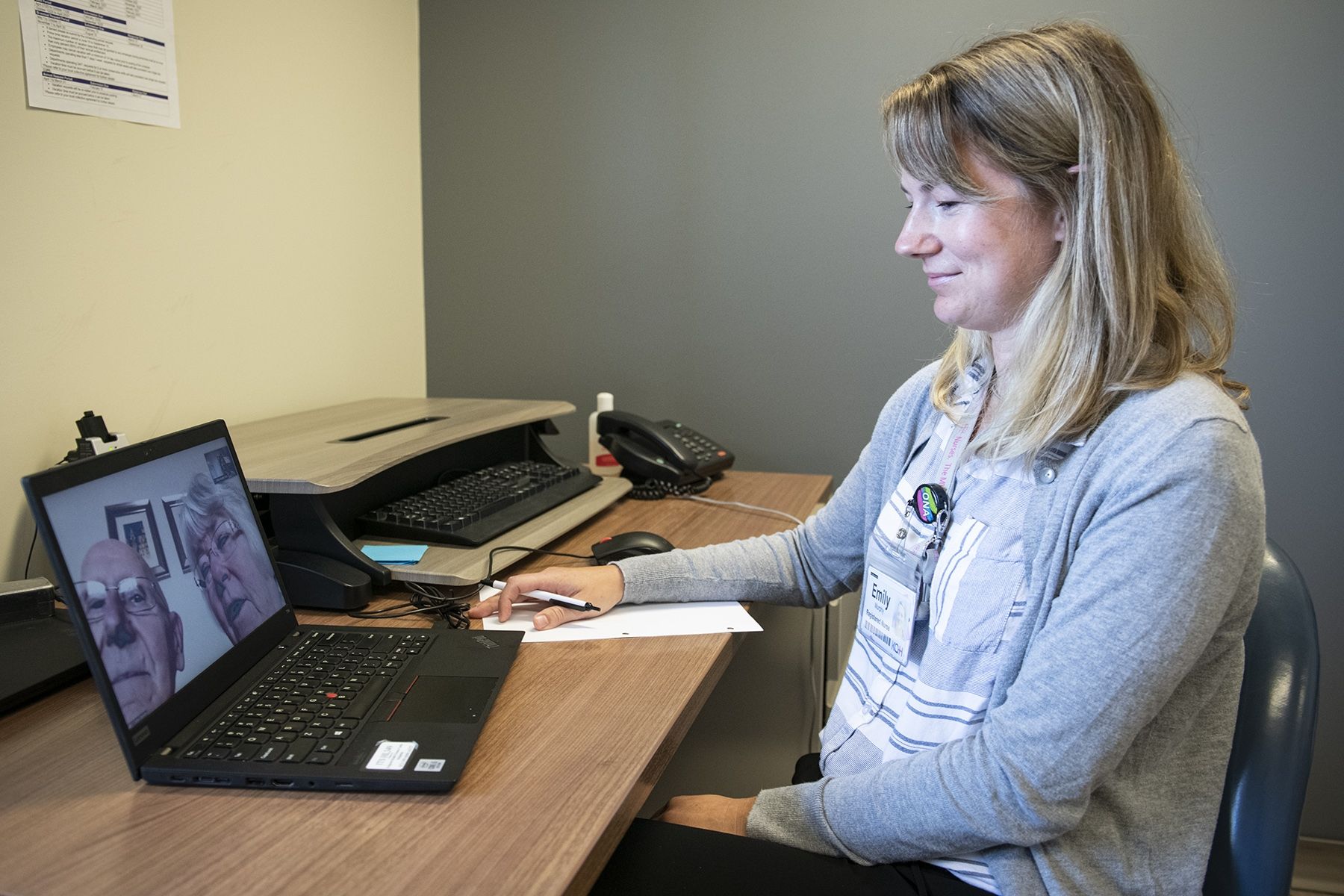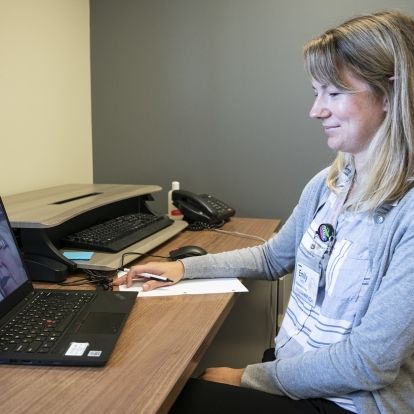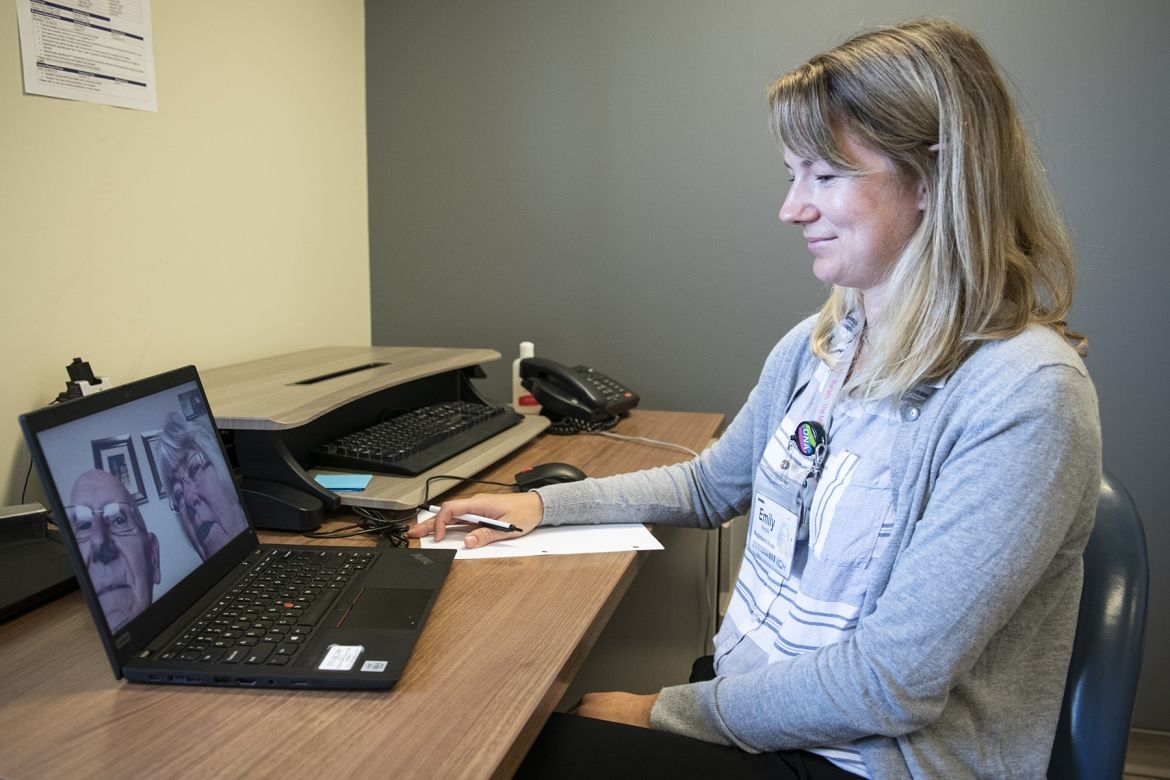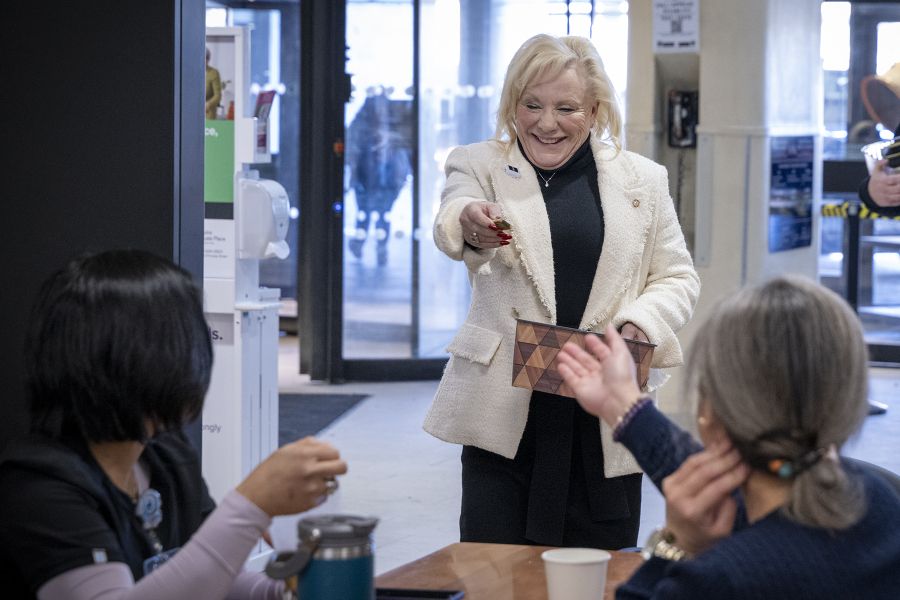
Speaking about the virtual care he received after having quadruple bypass surgery in June, Brighton resident Rick Liscomb says, “It’s absolutely wonderful – what a comforting thing to be monitored by your care team from the comfort of your home.”
Like many patients, Liscomb’s recovery from surgery has had its ups and downs. Sometimes if symptoms after surgery are left unchecked, another hospital stay may be necessary. Also, when people experience post-surgery symptoms and don’t know what is causing them or what to do, they may visit the emergency department (ED) to be safe.
KHSC anesthesiologist Dr. Joel Parlow says that about 20 per cent of patients return for hospital care within the first 30 days after surgery.
“Since the program began in January, ED visits are down five to 10 per cent among the 560 surgery patients who have been monitored remotely, compared to patients in the past who have not received virtual care,” says Dr. Parlow. “Another great outcome for these patients is that unplanned hospital readmissions within the first 14 days of being discharged from the hospital have been reduced up to 10 per cent.”
Surgical patients being monitored use simple technology called Connected Health by Cloud DX, which includes a tablet and remote monitoring equipment to assess six biophysical parameters: blood pressure, heart rate, respiratory rate, oxygen saturation, temperature and weight. Patients complete daily surveys that assess their recovery and record their vital signs. All data are relayed instantly and wirelessly to KHSC nurses who assess it and ensure patients receive the care they need.
“This was my first surgery, and recovering at home would have been scary without the support from the virtual care team,” says Liscomb. “They all deserve a huge pat on the back.”
The program’s manager Tyler Hands shares Liscomb’s regard for the care that the team has provided to patients and families: “Not only has this program supported improvements to hospital capacity, but it has also helped alleviate the anxieties and concerns patients often experience as they transition home after surgery.”
At the beginning of the year, KHSC received $350K in provincial funding for a 6-month pilot initiative to expand virtual care with the remote monitoring of patients who have undergone semi-urgent, urgent or emergency surgeries. During the COVID-19 pandemic, freeing up hospital beds and getting patients safely home earlier, while reducing complications and hospital readmissions have been important accomplishments for KHSC.
“We are hoping to continue to support surgical patients virtually, and to build a sustainable program that expands to support patients in other areas across KHSC,” says Hands.
Gallery


Emily is one of the nurses who are in regular contact with surgical patients virtually and following their progress.



